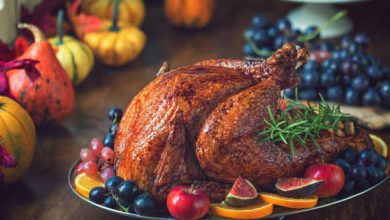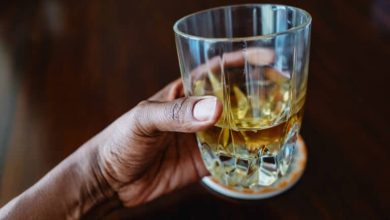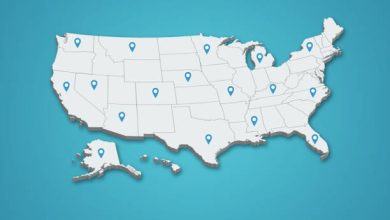Menopause Needs a Rebrand — Halle Berry’s Mission to Empower Women Everywhere – BlackDoctor.org


In a packed virtual room full of energy, candor, and purpose, Halle Berry and a team of powerhouse women introduced something rare in medical research: a study centered on women in midlife. The PRESS Study — short for Peloton Respin Exercise Symptom Study — is one of the largest efforts ever launched to understand how movement, mindset, and community can improve the well-being of women navigating menopause and beyond.
What If Menopause Just Needs a Rebrand?
Berry’s journey into menopause wasn’t scripted or graceful — it was abrupt.
“I found out I was in perimenopause at 54 — abruptly, with no warning from my doctors,” she says.
Like millions of women, she spent years misdiagnosed or dismissed. “My doctors told me I was ‘simply aging’ — and that this is what happens to all women,” Berry adds. “When I finally sat down with a menopause specialist — after weeks of waiting, hours of research, and a huge price tag – I didn’t even know the right questions to ask and walked away with even more confusion.”
That moment was her turning point.
“That’s when it hit me: if this is what it feels like for me, what does it feel like for everyone else? That question became the beginning of Respi,” she shares.
Now, as an entrepreneur, Berry is channeling her personal struggle into what she calls “the biggest respin of all” — breaking the stigma around menopause and giving women the tools to feel powerful again.
“Menopause impacts over half the world’s population, and my goal is to inspire women like you to embrace this natural transition with the support they deserve — years before your first hot flash,” she notes.
That mission became Respin Health’s Reset Program, a 12-week, expert-backed system designed to help women navigate menopause with science, structure, and support.
“We’re now building what I wish I’d had access to. I wanted to turn all the resources I had— world-class menopause experts, cutting-edge research, real support from a community of peers— into something that could help every woman navigating this chapter…Not vague advice. Not another expensive guess. A real path forward,” Berry adds.
She’s giving a voice to what millions of women have been feeling, which has turned into a rallying cry.
“This is personal. I know what it feels like to be strong in every other part of your life— and still feel lost in your own body. Now you don’t have to figure it out alone,” Berry says.
RELATED: Halle Berry Nearly 60: Beauty & Body Changes Through the Years
Why It Matters
Berry’s personal experience underscores a broader issue: women in midlife have long been underrepresented in medical research.
“We haven’t been studied,” Berry says bluntly. “It’s still hard today to get funding to study what’s going on with our bodies.”
Her frustration is justified — and motivating. Berry cites the recent veto of a menopause bill she helped champion in California as proof that progress won’t come from waiting for permission. “So, ladies, we’ve got to take this into our own hands,” she says. “Showing up for this study is one huge way we show up for ourselves and each other.”
The Power of Participation
The study’s original goal was to recruit 500 women. Instead, over 1,200 signed up in a single day.
That response, according to the study’s principal investigator Dr. Elizabeth Knight, shows how ready women are to take charge of their health. “We have the opportunity to make this better for us and the women who come behind us,” Knight says.
The PRESS Study uses Peloton classes and Respin’s coaching platform to study how movement and lifestyle affect menopause symptoms — from sleep and cognition to metabolism and mood. “It’s not about perfection,” Dr. Knight explains. “It’s about participation. It’s about seeing what works for real women, in real lives.”

Lifestyle as Medicine
Clinical lead Dr. Sarah De la Torre, a board-certified OB-GYN and functional medicine expert, reframed midlife as transformation, not decline.
“Midlife isn’t just a hormonal shift — it’s a full-body, full-mind shift,” she says. “But menopause is not a mystery. We do have answers, and one of the most powerful ones is lifestyle.”
She calls lifestyle “the language your body understands” — movement, nutrition, sleep, stress, and connection. “This isn’t soft medicine,” she adds. “It’s frontline therapy. Every time you move, you’re changing your body biochemically.”
Movement That Meets You Where You Are
Peloton instructor Joslyn Thompson Rule, who designed the strength component of the PRESS program, built four progressive workouts that meet women where they are — no matter their fitness level.
“My goal was to make sure everyone gets to move,” she says. “Because when the environment feels like it’s made for you, you belong there. And when you belong, you show up.”
Coaching the Second Act
The Respin coaching team — Maria Luque, Jil Foos, Monika Pierce, Jessica Corwin, and Darlene Thomas — each shared their personal motivations for joining the project:
- Maria: “Now is the time to be curious, to be strong, to redefine what we can do.”
- Jill: “Midlife can be a powerful time of reinvention — but it takes awareness and support.”
- Monika: “This is a revolution. Take up space. Reclaim your energy and your dreams.”
- Jessica: “Midlife isn’t the end of your story. It’s your chance to write a brighter next chapter.”
- Darlene: “I want women to unleash their strength — to live their power, and thrive. Because we can.”
Expert Tips: Thriving Through Menopause
Drawing from the PRESS Study team’s expertise, here are five actionable ways to feel better, faster:
- Move daily — even a little counts.
Strength training and cardio boost metabolism, stabilize mood, and protect bone health. Aim for 20–30 minutes a day. - Prioritize protein.
Women in menopause lose muscle faster; protein (especially at breakfast) helps rebuild it and keep energy stable. - Sleep like it’s your job.
Restorative sleep regulates hormones. Limit caffeine after noon and keep your room cool and dark. - Connect with your community.
Loneliness amplifies stress hormones. Whether it’s a walking group, Peloton class, or Respin chat — connection heals. - Track, don’t guess.
Symptoms vary daily. Journaling your mood, sleep, and exercise helps spot patterns — and what’s really working.
A Study, and a Movement
When Berry returned to close the session, her voice cracked with emotion.
“I’m always full, and I’m sorry, but this just fills me up,” she says. “To hear that you’re learning, that this matters, that you’re showing up — that’s why this is my mission.”
Her message was clear: spiral up, take up space, be loud.
“We’ve given birth. We’ve taken care of everyone else. Now it’s time to make space for us,” she says. “We belong. We matter. And together, we’re proving it.”
Looking Ahead
Results from the PRESS Study will be released in January, but the impact is already visible. This isn’t just a study — it’s a movement to reclaim midlife, rebrand menopause, and redefine what it means to thrive.
As Berry put it, “There’s nothing more powerful than a group of energized women on purpose for something that matters to them. We’ve got this.”




